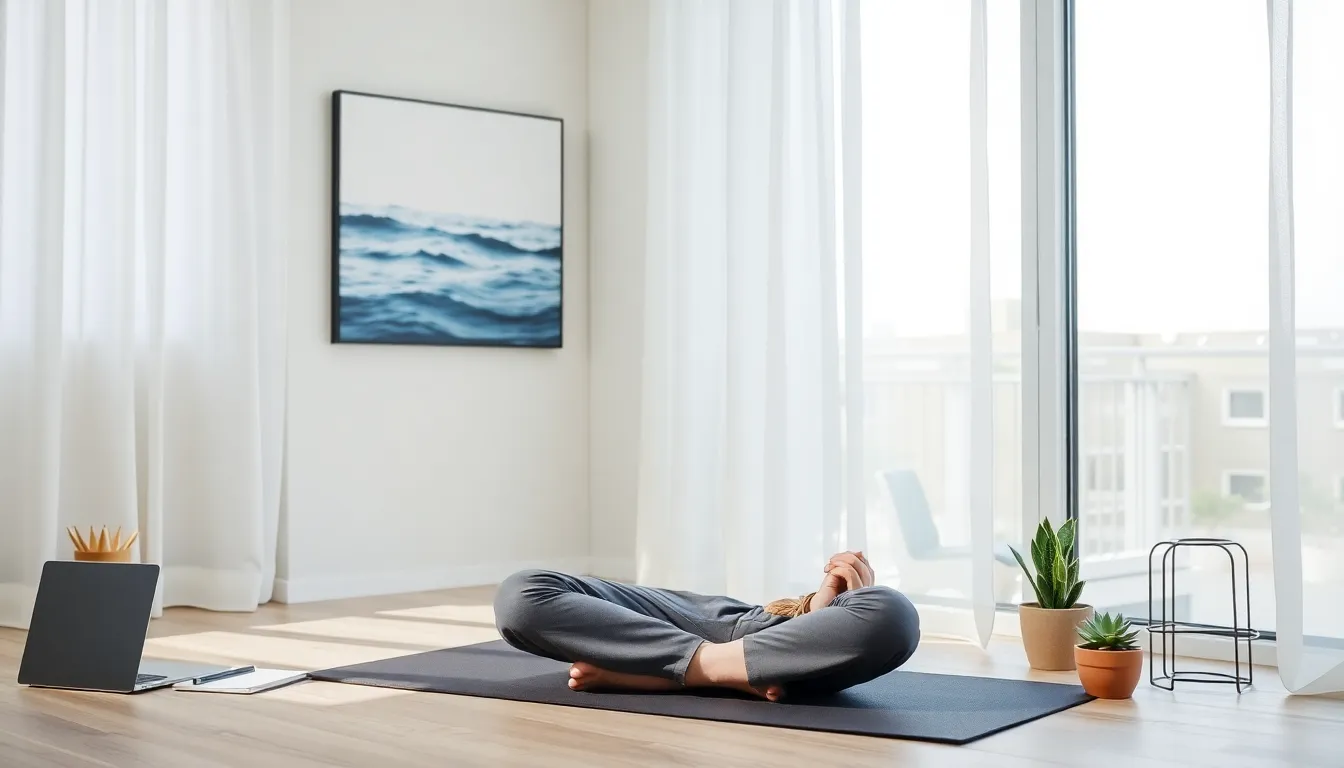Table of Contents
ToggleIn a world obsessed with keeping up with the Joneses, lifestyle deflation might just be the unsung hero we all need. Imagine a life where less truly is more—think fewer subscriptions, smaller homes, and a whole lot more freedom. It’s like a breath of fresh air in a stuffy room filled with fancy gadgets and expensive lattes.
Lifestyle deflation isn’t about sacrificing joy; it’s about rediscovering what really matters. It’s the art of trimming the excess while keeping the fun. With rising costs and endless consumerism, embracing this concept can lead to a happier, more fulfilling life. So why not kick that overstuffed lifestyle to the curb and dive into a world where simplicity reigns supreme? After all, who needs a yacht when you can have a hammock and a good book?
Understanding Lifestyle Deflation
Lifestyle deflation emphasizes the notion of simplifying life and prioritizing genuine happiness by reducing excess. This concept promotes clarity and fulfillment through intentional living.
Definition of Lifestyle Deflation
Lifestyle deflation means intentionally simplifying one’s life by minimizing material possessions and reducing consumption. This approach encourages individuals to focus on meaningful experiences instead of accumulating unnecessary items. Fewer subscriptions lead to reduced financial burdens, contributing to overall well-being. Individuals embracing this concept find joy in minimalism, allowing them to allocate resources to essential aspects of life such as relationships and personal growth. The essence of lifestyle deflation lies in recognizing that true wealth transcends material goods.
Historical Context
Historical movements have shaped the idea of lifestyle deflation. The Great Depression marked a pivotal shift in how people viewed consumerism, prompting many to adopt frugality as a necessity. Simplicity movements emerged in the 20th century, emphasizing minimal living and rejecting overindulgence. Notable figures like Henry David Thoreau advocated for simplicity, influencing modern minimalist lifestyles. These historical contexts laid the groundwork for understanding lifestyle deflation in today’s fast-paced, consumer-driven society, encouraging individuals to reconsider their priorities.
Causes of Lifestyle Deflation
Lifestyle deflation stems from various economic and psychological factors that shape personal choices.
Economic Factors
Financial constraints often lead individuals to reconsider their spending habits. Rising living costs result in tighter budgets, prompting many to prioritize essential expenses over luxury items. Changes in employment or income instability contribute significantly to this shift, nudging individuals toward minimalism. Economic downturns, like recessions, instill a sense of caution, steering people away from consumerism. Additionally, increased awareness of sustainable living influences financial decisions, encouraging choices that avoid wasteful practices. Ultimately, economic pressures create an environment where simplicity becomes a preferred lifestyle.
Psychological Factors
Psychological influences play a crucial role in the adoption of lifestyle deflation. Individuals experience increased stress and anxiety from constant comparison with others, often via social media. This social pressure can lead to a desire for more, which ultimately results in dissatisfaction. However, many find peace and fulfillment through the process of decluttering their lives and focusing on what truly matters. Embracing mindfulness often leads to improved emotional well-being and a clearer sense of purpose. Consequently, psychological motivations encourage a shift toward simpler, more meaningful living.
Impacts of Lifestyle Deflation
Lifestyle deflation significantly influences various aspects of daily life, including personal finance and mental health. These impacts often lead to substantial changes in how individuals approach their spending and overall well-being.
Personal Finance
Budgeting becomes more straightforward with lifestyle deflation. Reduced expenses from fewer subscriptions and smaller living spaces allow for increased savings. Individuals often redirect these savings toward experiences that provide long-term fulfillment, such as travel or education. Prioritizing essential needs over luxury items helps individuals navigate financial pressures more effectively. Studies indicate that minimalism can lead to a clearer understanding of spending habits, fostering financial independence. Individuals frequently report increased stability, feeling empowered by their financial choices rather than constrained by debt.
Mental Health
Mental health benefits arise from adopting a lifestyle of simplicity. Individuals often experience reduced anxiety and stress when decluttering their lives. Embracing minimalism encourages greater focus on personal relationships and meaningful experiences, contributing to improved emotional well-being. Many find that distancing themselves from social comparisons, particularly those perpetuated by social media, fosters a healthier self-image. Increased mindfulness practices frequently emerge alongside lifestyle deflation, promoting a clearer sense of purpose. Emphasizing personal growth over material accumulation leads to greater overall happiness for many individuals.
Strategies to Combat Lifestyle Deflation
Adopting effective strategies can help mitigate the effects of lifestyle deflation. Mindfulness and financial planning play vital roles in this process.
Mindfulness and Awareness
Mindfulness fosters greater awareness of personal needs versus wants. Practicing mindfulness can significantly reduce the urge to acquire unnecessary items. Individuals can engage in daily reflection to clarify values and priorities. This heightened awareness leads to more intentional choices, such as spending on experiences rather than material goods. Cultivating gratitude for what one already has enhances satisfaction and reduces the desire for excess consumption. Additionally, incorporating mindfulness into routines can alleviate stress and promote a sense of contentment, allowing for deeper connections with loved ones and oneself.
Budgeting and Financial Planning
Effective budgeting simplifies financial management during lifestyle deflation. Tracking expenses allows individuals to identify non-essential spending and make adjustments. Setting clear financial goals aligns with prioritizing meaningful experiences over luxury items. Savings from reduced subscriptions and living costs enable individuals to invest in activities that enrich their lives. Creating a budget can lead to increased financial independence and stability, paving the way for long-term financial health. Moreover, reassessing spending patterns regularly empowers individuals to stay focused on their priorities and maintain a simpler lifestyle.
Lifestyle deflation offers a refreshing perspective on modern living by encouraging individuals to strip away the unnecessary. By embracing simplicity and focusing on what truly matters, people can achieve a greater sense of happiness and fulfillment. This intentional shift not only alleviates financial pressures but also nurtures emotional well-being.
As individuals prioritize meaningful experiences over material possessions, they often discover a clearer sense of purpose. The journey toward a simpler lifestyle can lead to a more rewarding existence, fostering deeper connections and personal growth. Ultimately, lifestyle deflation serves as a powerful reminder that less can indeed be more.







